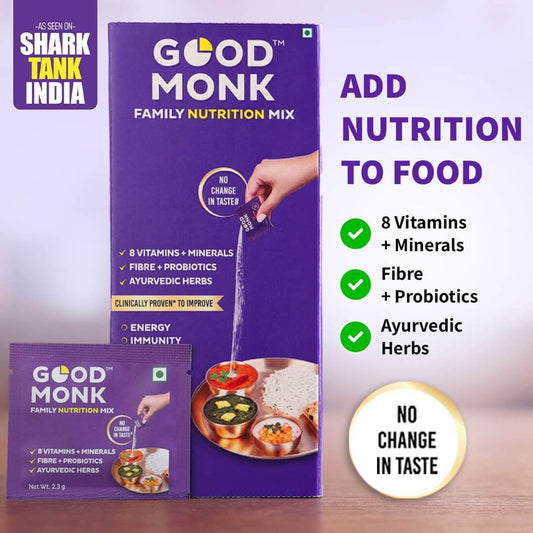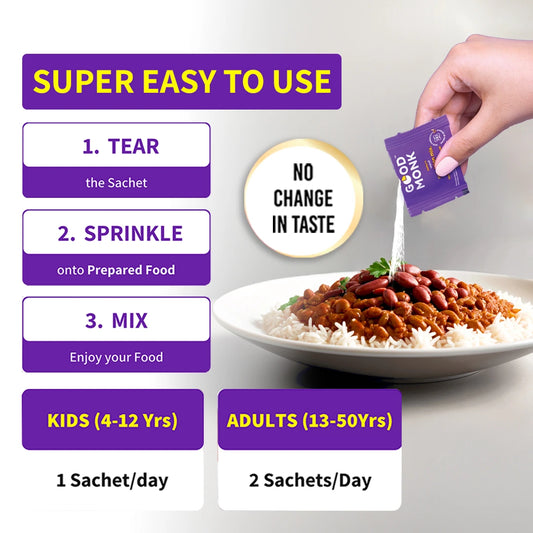Vitamin D is a vital nutrient that plays a crucial role in maintaining overall health and well-being. In this blog, we'll explore why Vitamin D is important, provide a comprehensive list of Vitamin D-rich foods, including vitamin D fruits and vegetables, discuss the numerous benefits of including these top 10 vitamin d foods in your diet, and answer some frequently asked questions about Vitamin D.
Why Vitamin D is Important
Vitamin D, often referred to as the "sunshine vitamin," is essential for various aspects of our health. While we can synthesize it from sunlight, many may not be aware of the importance of this nutrient. Here's why it matters:
- Bone Health: Vitamin D is essential for calcium absorption, which is crucial for maintaining strong and healthy bones. It helps prevent conditions like osteoporosis.
- Immune System Support: Vitamin D plays a role in supporting the immune system, helping your body fight off infections and diseases.
- Mood Regulation: Some studies suggest that Vitamin D may contribute to improved mood and mental well-being, particularly during the darker months of the year.
- Cardiovascular Health: Adequate Vitamin D intake may be associated with a lower risk of cardiovascular diseases.
List of Vitamin D-Rich Foods
To ensure you're getting enough Vitamin D from various sources, it's essential to include a variety of foods in your diet. Here's a list of vitamin d food, including vitamin D fruits, vitamin D vegetables, and other sources:
- Fatty Fish: Salmon, mackerel, tuna, and sardines are excellent sources of Vitamin D.
- Cod Liver Oil: Just one tablespoon can provide more than the recommended daily intake.
- Egg Yolks: Eggs contain small amounts of Vitamin D, primarily in the yolks.
- Mushrooms: Some types of mushrooms, like shiitake and maitake, can naturally synthesize Vitamin D when exposed to sunlight. Pro tip: Always keep your mushrooms in sunlight for a minimum of 30 minutes before consumption to allow them to produce Vitamin D for you!
- Fortified Foods: Many foods, such as fortified milk, orange juice, and breakfast cereals, are enriched with Vitamin D.
Benefits of Vitamin D-Rich Foods
Incorporating Vitamin D-rich foods into your diet, including fruits and vegetables, can offer several health benefits, including but not limited to:
- Stronger Bones: Adequate Vitamin D intake helps maintain strong and healthy bones, reducing the risk of fractures.
- Immune Support: Vitamin D supports the immune system's ability to fight infections and diseases.
- Mood Enhancement: Some evidence suggests that sufficient Vitamin D levels can improve mood and reduce the risk of depression.
- Cardiovascular Health: Vitamin D may contribute to a healthier heart and lower the risk of heart-related conditions.
- Healthy Pregnancy: Eating foods rich in vitamin D is helpful and very important for pregnant women. It helps in the development of the baby's bones, teeth, and overall health, and that is why eating vitamin D food items is needed which can reduce the risks of complications like preterm birth and gestational diabetes, leading to a healthier pregnancy for both mother and child.
- Reduces Inflammation: Vitamin D foods can greatly help reduce any type of inflammation in the body, which is very important for preventing any health problems like heart disease and other autoimmune disorders. That's why eating vitamin d rich foods can help your body manage inflammation better and also minimize it.
- Enhance Longevity: Getting enough vitamin D and eating vitamin d rich diet can help you live longer and there are many studies that shows it can lower the chance of many serious illnesses like heart disease and even some types of cancers. So, eating sources of vitamin d foods like vitamin d fruits and vitamin d vegetables can improve your health and possibly extend your life.
Conclusion
Vitamin D is a crucial nutrient for maintaining overall health and well-being. By including Vitamin D-rich foods in your diet, such as fruits, vegetables, and other sources, you can support your bone health, boost your immune system, and potentially enhance your mood. Don't forget to enjoy a balance of these foods to ensure you get the recommended daily intake.
FAQs
Q1: How much Vitamin D do I need daily for optimal health?
A: The recommended daily intake of Vitamin D varies by age and gender but generally ranges from 600 to 800 IU (International Units) per day for most adults. Consult with your healthcare provider for personalized recommendations.
Q2: Can I get enough Vitamin D from sunlight alone?
A: While sunlight is a natural source of Vitamin D, getting enough solely from sunlight can be challenging, especially during the winter months or for individuals with limited sun exposure. Dietary sources and supplements may be necessary.
Q3: What are some signs of Vitamin D deficiency?
A: Symptoms of Vitamin D deficiency can include fatigue, bone pain, muscle weakness, frequent infections, and mood changes. If you suspect a deficiency, consult with a healthcare professional for testing and guidance.
Q4: Which form of Vitamin D is the best?
A: Vitamin D3 (cholecalciferol) is generally considered more effective than Vitamin D2 (ergocalciferol) at raising and maintaining blood levels of Vitamin D. However, both forms are used in supplements and fortified foods.
Q5: Can you get too much Vitamin D?
A: Excess vitamin D intake can lead to elevated levels of calcium in your blood, which can cause other health issues. The upper limit for vitamin D is 100 mcg (4,000 IU). Higher doses may be recommended for certain individuals but should be taken under healthcare supervision.
Q6: How do you know if you're getting enough Vitamin D?
A: The optimal vitamin D blood level is generally considered to be at least 30 ng/ml. You can get a blood test to determine your vitamin D level, which should be discussed with your healthcare provider. For better assistance, you can visit know your health.










